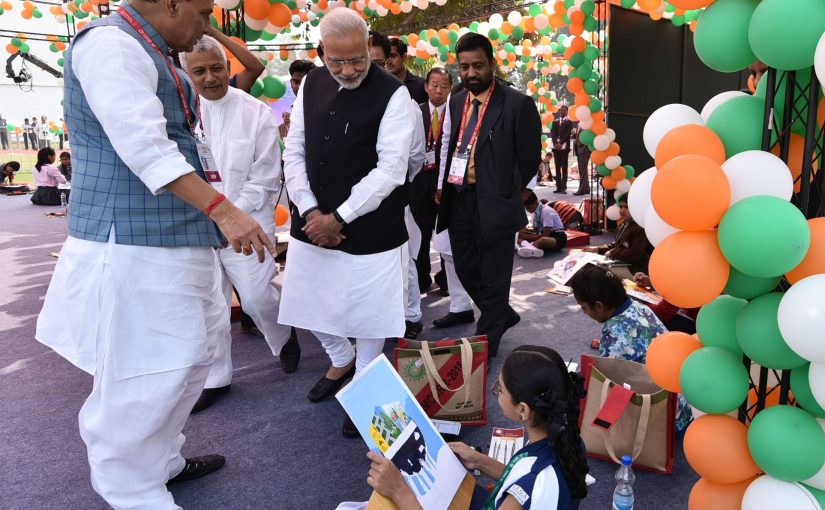
Union Home Minister Shri Rajnath Singh speech at the inaugural function of AMCDRR 2016
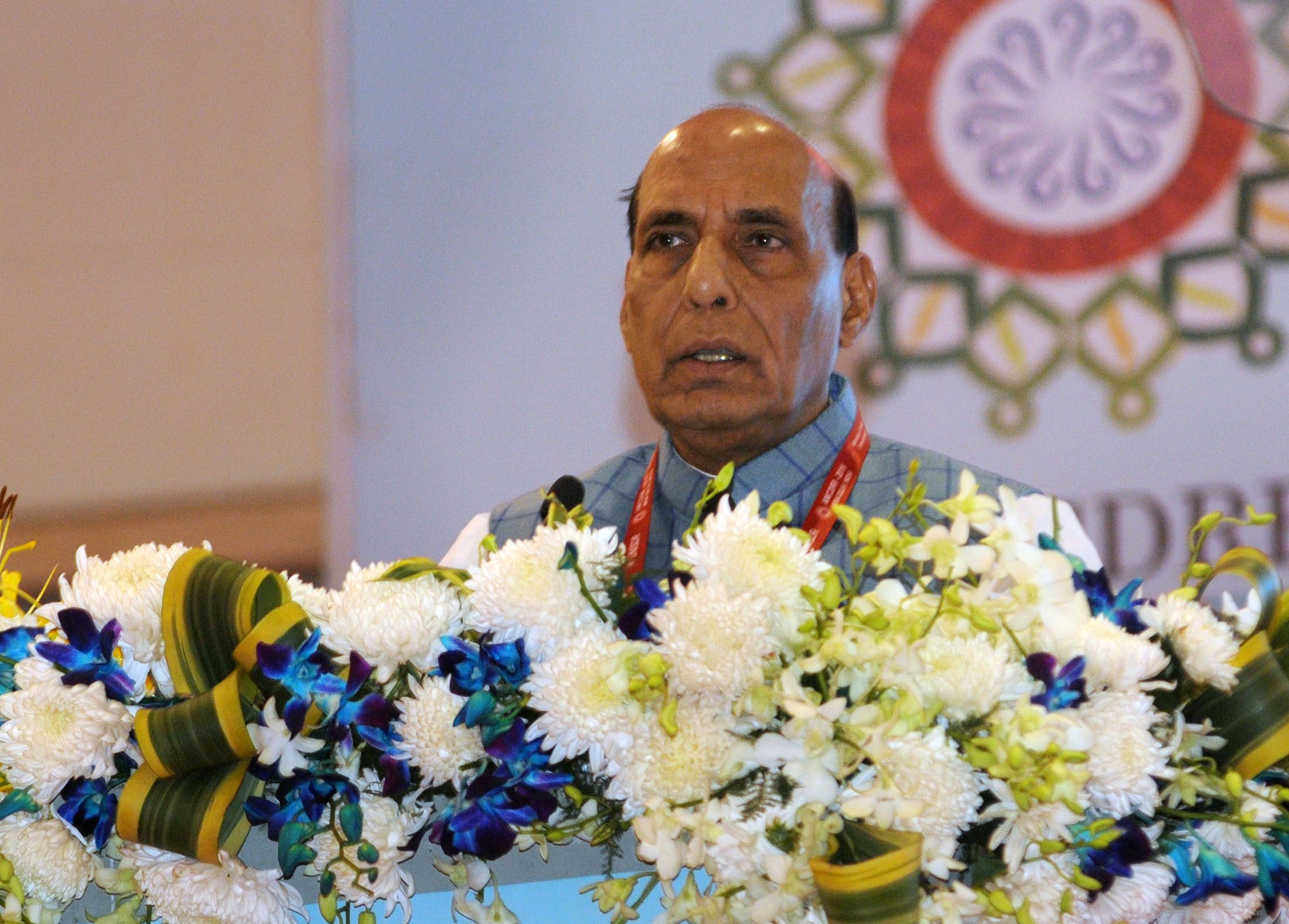
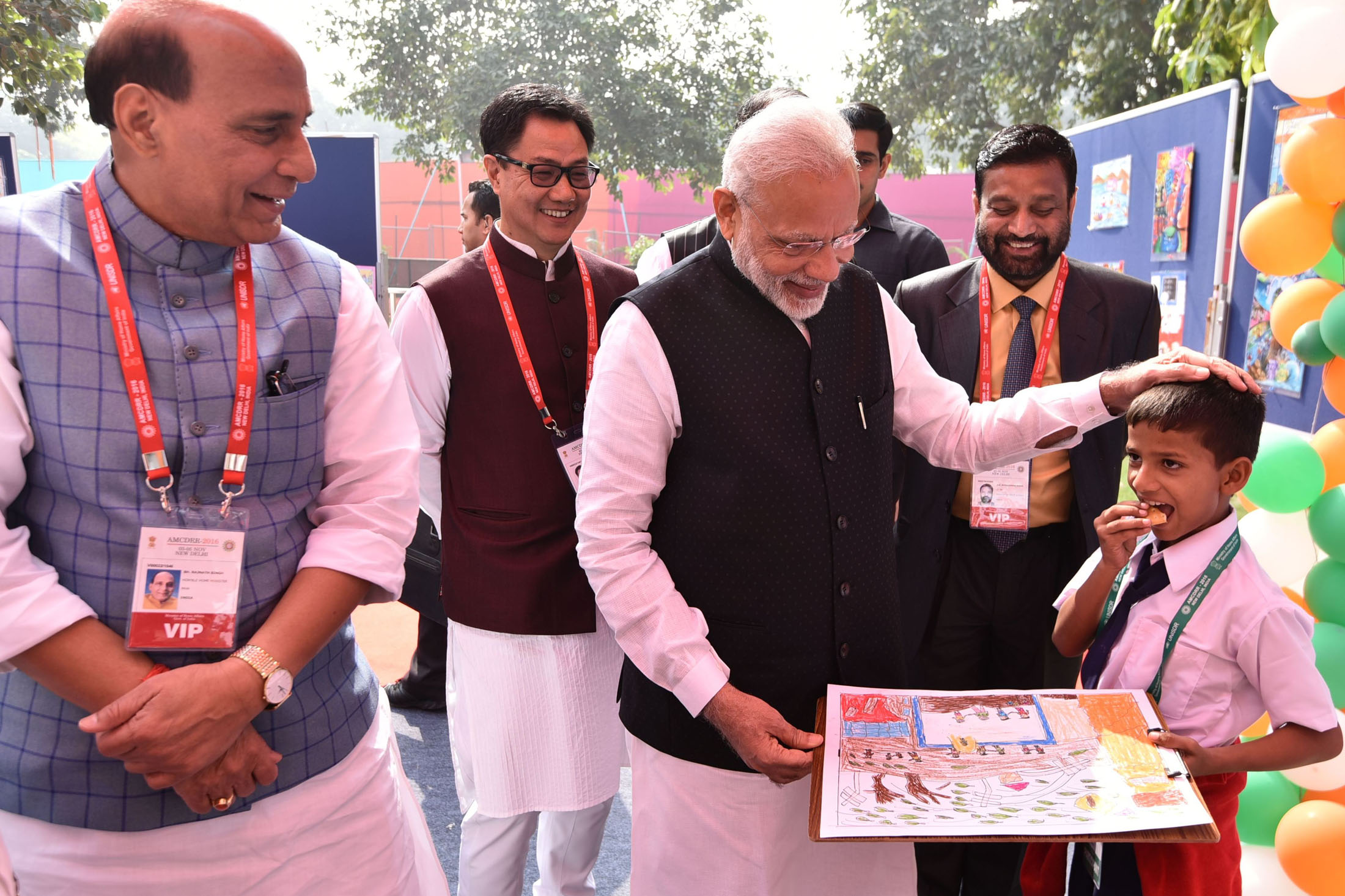
The Minister of State for Home Affairs, Shri Kiren Rijiju also seen.
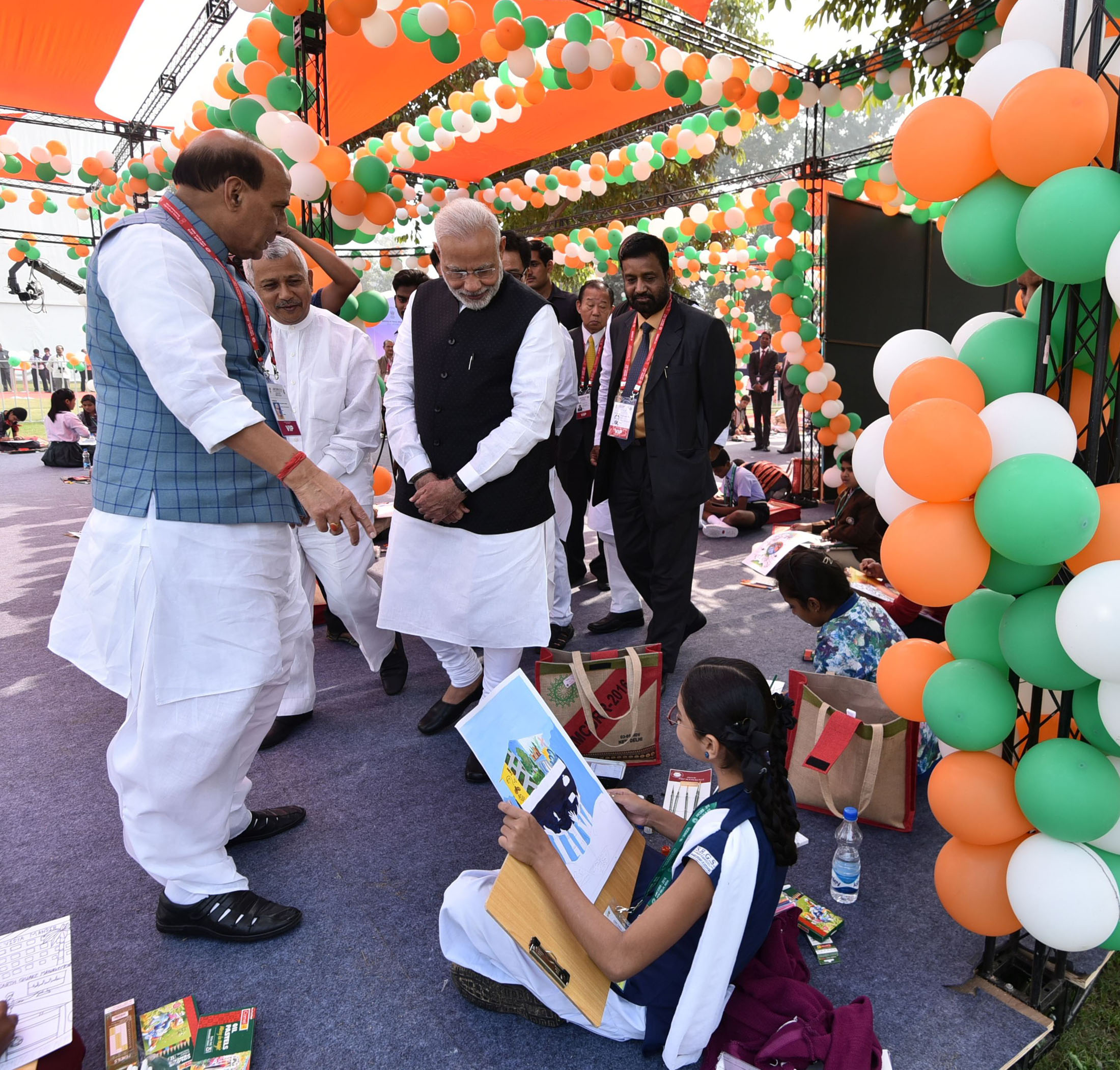
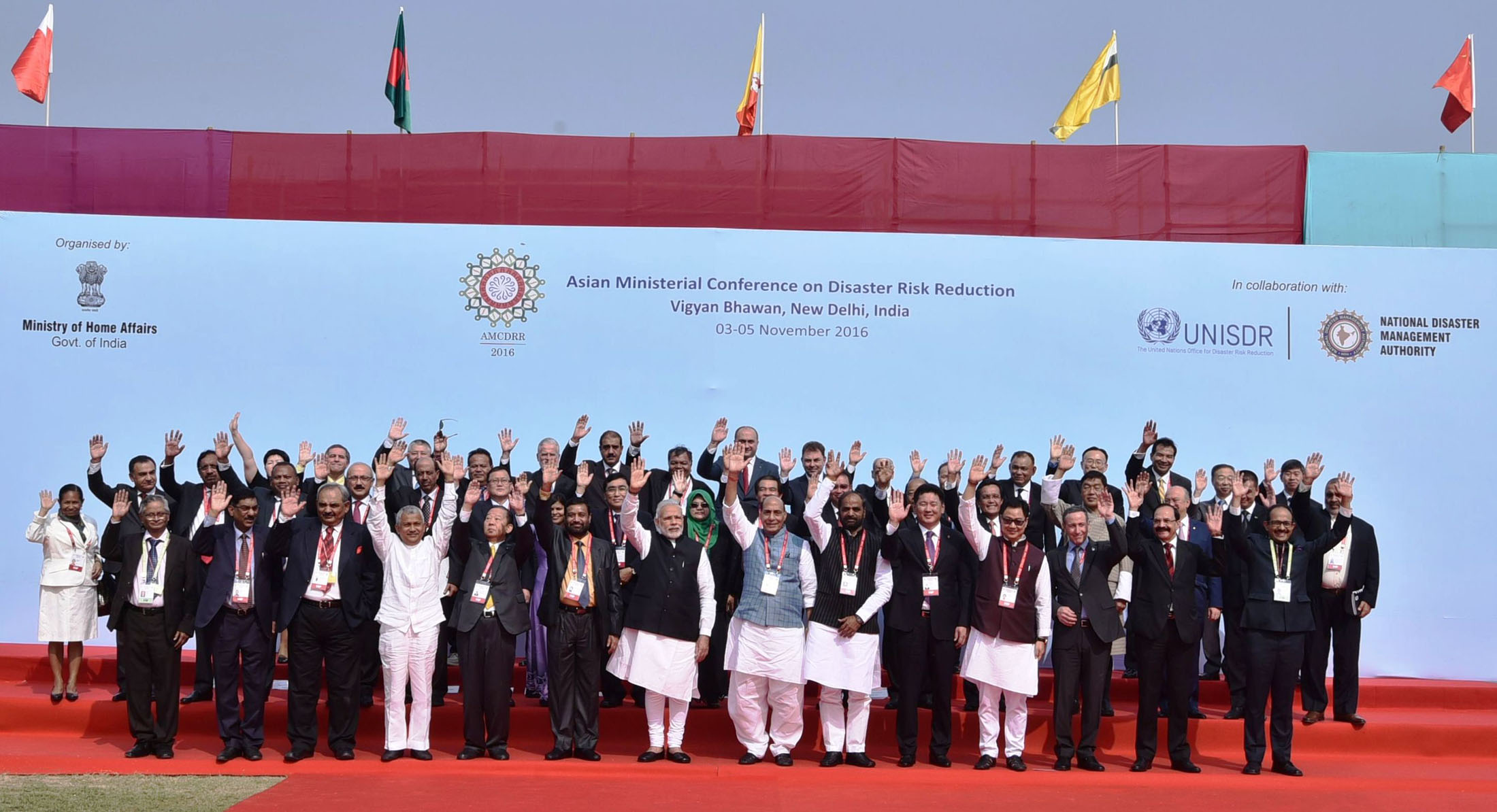
The Ministers of State for Home Affairs, Shri Hansraj Gangaram Ahir and Shri Kiren Rijiju are also seen.
Following is the text of speech by the Union Home Minister Shri Rajnath Singh at the inaugural function of Asian Ministerial Conference on Disaster Risk Reduction (AMCDRR) 2016, here today:-
“Hon’ble Prime Minister Shri Narendra Modiji, Hon’ble Deputy Prime Minister Mr. Khuelsukh, Republic of Mongolia, Hon’ble Deputy Prime Minister of Nepal Shri Bimlendra Nidhiji, esteemed colleagues on the dias, distinguished delegates from Asia and Asia-Pacific countries, representatives of United Nations Organizations, Civil Society Organizations, Representatives of Local Bodies from India, Ladies and Gentlemen.
On the occasion of the seventh Asian Ministerial Conference on Disaster Risk Reduction, it gives me great pleasure to welcome you all to India. I am grateful to the Ministers, distinguished delegates and representatives of local self-governments who, despite their busy schedule have accepted our invitation to participate in this event. The gathering today collectively represent commitments for a safe and secure world. I hope my Ministry has made all possible efforts to make your stay comfortable here in New Delhi. I hope you all will have a pleasant stay here, and that your visit will be fruitful and rewarding in terms of outcomes and learnings.
Disasters, both natural and man-made are occurring with increased frequency and intensity. The Asian region is specially vulnerable. Eight of the ten disasters in the world occur in Asia, making two-thirds of the world’s population vulnerable. We believe that disaster resilience is the collective responsibility of all segments of society, including governments, business community, non-governmental sector, and individuals. If we all work together with a united focus and a shared sense of responsibility to improve disaster resilience, we will be far more effective than the individual efforts of any one sector. This is, therefore, a timely and important conference, a critical first step in implementing the Sendai framework in our region.
Disasters seriously affect our economy, are a set-back to our development efforts and, most of all, cause untold grief to the families who lose their near and dear ones. Moreover, a grieving family is simultaneously faced with loss of both home and livelihood. Minimizing the possibility, and then the impact of this human tragedy at its worst is, in my opinion, amongst the most critical part of the compact between the State and its citizens. It is gratifying to note that the agenda of the conference covers a wide diversity of subjects ranging from risk governance, making world heritage resilient to business and private sector engagement in Disaster Risk Reduction.
I belong to, and have been Chief Minister of a State that is threatened by both earthquakes, and floods. I have witnessed, first hand, the suffering that such disasters bring, and am aware that our activities, such as unregulated building, is adding to the already greater risk, caused by factors such as climate change. It is, therefore, a matter of great satisfaction to me that our focus is shifting from disaster management, to disaster risk reduction. There is now international acknowledgement that efforts to reduce disaster risks must be systematically integrated into policies, plans and programmes for sustainable development and poverty reduction.
We all know, of course, that disaster risk recognizes no political boundaries. This includes risks caused by human actions: disasters in one region can, and will, impact other regions. It is, therefore, also satisfying that today we realize that both disaster risk reduction, and disaster relief need to be supported through bilateral, regional and international cooperation, including partnerships. It is with this spirit of regional and international cooperation that India has supported, and is always ready to support, other countries, specially its neighbours, in disaster mitigation and management efforts. We offer the best we have in terms of technology, capacity building and relief expertise to all those in need. We are uncompromisingly committed to regional and international cooperation in this regard.
In India, our ancestors gave us the concept of ‘Vasudhaiva Kutumbakam’, which means that the whole planet – with all its human beings, plants, animals, birds and natural resources – is one family. This ancient realization of our inter-connectedness is even more relevant and urgent today. I would like to urge this august gathering to embrace this significant notion and enhance international cooperation through sharing of technology, expertise and necessary resources. Here I would also like to reiterate the commitment made by our Hon’ble Prime Minister in SAARC Summit last year of ensuring India’s help and expertise to its neighbouring countries.
There is a clear need to discuss specific aspects of multilateral dialogue and cooperation such as, establishment of clear channels of communication, sharing scientific knowledge, creation of a database of disaster response capabilities, and pre-positioning of material to shorten response time.
Disasters in India are being handled at all levels – at the National, the State and the District levels. Comprehensive and holistic policies for management of all disasters supported by plans, legal framework and financial arrangements are essential elements of any strategy for their management. The role of the States is crucial in this, as they face the immediate brunt from disasters. We are, of course, committed to doing the utmost to support their endeavour.
India has taken up several initiatives to substantially reduce disaster risk and losses in lives, livelihoods and health and in the economic, physical, social, cultural and environmental assets of persons, business, communities and countries. On the first day of June 2016, India and Asia’s first ever National Disaster Management Plan was released by the Prime Minister. The Plan outlines a framework for strengthening disaster risk governance at various levels. The Plan also provides a framework for disaster risk reduction through mainstreaming disaster risk reduction into developmental plans.
The AMCDRR is a unique opportunity to come together and provide a sense of urgency to the implementation of Sendai Framework. We have invited a number of officials from our local and State Governments who will have a lot to share with and learn from you. In the run up to the AMCDRR a number of our educational and training institutions have organized Curtain Raiser Events to broaden the engagement on disaster issues and mobilize the capacities of all sections of society.
Before concluding, we pledge our support to ‘Asian Regional Plan for implementation of the Sendai Framework’, its goals and priorities. We commit ourselves to work with countries in the region to achieve the goals of Sendai Framework towards a safer and resilient Asia and the world against disasters”.